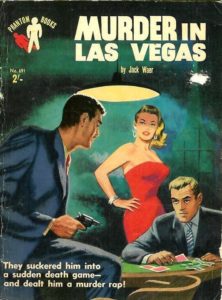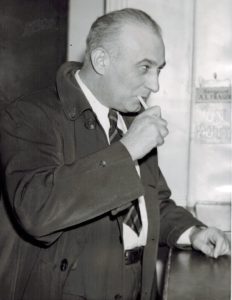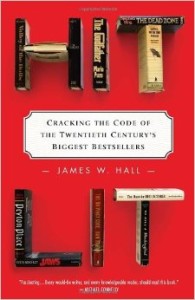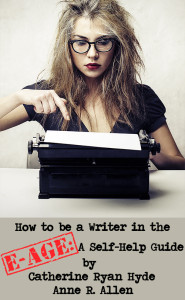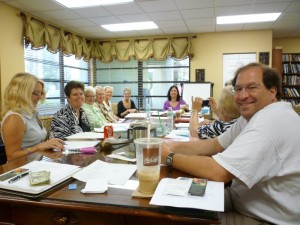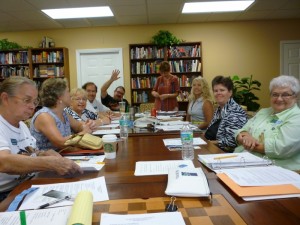The final Words of Wisdom of 2024 was about social media and I wanted to follow up in the new year with a post about Bluesky, a newer social media which has been growing by leaps and bounds since last year. Today I’m going to give a quick overview, and then provide a short list of guides and resources. Once a librarian, always a librarian.
I joined Twitter back in 2010, shortly after I bought my first iPhone and found it useful as a writer for connecting with other writers and readers. It’s how I was invited on the Marketing Science Fiction and Fantasy Podcast in 2017. I’d become online acquaintances with one of the hosts, indie author Lindsay Buroker on Twitter earlier, and in fact ended up also writing two guest posts for her own website back before I began self-publishing my novels.
In my experience social media works best when it’s about connection: for writers that means connecting with other writers and readers. I can’t say I’ve never sold books via social media, I have, but that’s a side benefit for me. As always, your mileage might well be different*.
Bluesky is essentially a Twitter/X alternative, working similarly to how Twitter had worked for years. You send out a post (nicknamed a “skeet’ by some users). People can repost your post and you can do likewise. People even repost their own to send it out at a different time.
Basics: Posts are limited to 300 characters, and can include images. Hashtags like #writingandbooks or #mystery are often used to help the platform identify the topic and other users who might be looking in that category see your post.
You can create lists, and you can divide your Bluesky feed into categories, which can be very handy, allowing you to click on, say “writing and books” and see posts in that particular feed. “Mutuals” is a feed for posts by those who you follow and who follow you.
Your profile is important—a nice photo or image avatar, and then a mini-bio/description of yourself. As authors, we’re used to providing a short bio. I like to make mine fun as well as informative.

Here’s a close up of the profile edit page, showing my description:

Starter Packs: I asked author friends who also used Bluesky what their number one tip for new users was, and the winner was “starter packs.”

Starter packs are curated lists of people to follow, such as mystery authors, indie authors, thriller writers etc.
Bluesky provides a helpful directory to aid in discovering ones. Here’s one put together for Sisters-in-Crime.
Creating them is straightforward, as shown here. I have yet to create more own starter pack but likely will at some point.
I’ve followed a number of writers on several starter packs and often they follow back. You can also be asked to be included in a starter pack, or start your own. I strongly suggest contacting anyone you wish to include in a starter pack and get their okay. By the same token, if you discover you are included in one, you can contact the creator to be removed.
Blocking another account: You have the ability to mute or even block another account if you want or need to. Blocking means they no longer see your posts, nor do you see theirs, and this works throughout the platform, regardless of whether they follow you or not. There are blocklists you can find and use.
Mostly I’ve blocked the same sort of “fake profiles” I used to encounter on Twitter—in my case, usually an attractive younger woman with an extremely abbreviated profile who usually only reposts other users posts. In a couple of cases, I’ve been DM’d (direct messaged) which then results in the block. Many if not most, are likely bots. Note: if you block the creator of a starter pack you were included in but don’t wish to be part of, you’ll also be removed from the starter pack.
Thus your profile also helps other users see you are an actual person and not a fake or spoof account. So does regularly posting and not *just* resharing others posts.
Organic feeds: Bluesky doesn’t use algorithms to control your feed, you see posts in the order in which an account you follow posts them. There’s a refreshing, organic feel to the platform. Currently there is no advertising, and the company has said at some point they may begin offering premium features as a subscription option, much like chat and video service Discord has a paid extra-features option.
It’s worth checking out if you’re looking for a new social media platform, one not controlled by algorithms, which allows you uncluttered feeds showing posts as they go live. It’s another place to meet fellow writers, readers, book bloggers, etc.
* In early 2022 author Travis Baldree’s debut fantasy novel Legends and Lattes was shared by fantasy author Seanan McGuire on Twitter. McGuire had a large number of followers on that platform and Baldree credits her share with giving his book a huge boost in initial sales, which led to an offer by a traditional publisher. I see that as a winning lottery-style success, highly unlikely for most of us, but a very noteworthy example of the power of sharing on social media. He hadn’t asked her to share either, she did it on her own after seeing the book’s cover and learning what it was about (cozy fantasy).
Further resources
- How-to-Geek has a nice visual guide to getting started.
- Lifehacker on how to get started.
- Wired provides this basic and brief orientation which you might find useful.
- Children’s author and illustrator Debbie Ridpath-Ohi has put together a terrific “bare bones guide” to Bluesky: which, despite the title, is really a thorough guide for beginners, packed with great advice. This is truly worth bookmarking as a reference.
There you have it, a very basic introduction to Bluesky. Have you joined this platform? Any tips you’d like to share?



